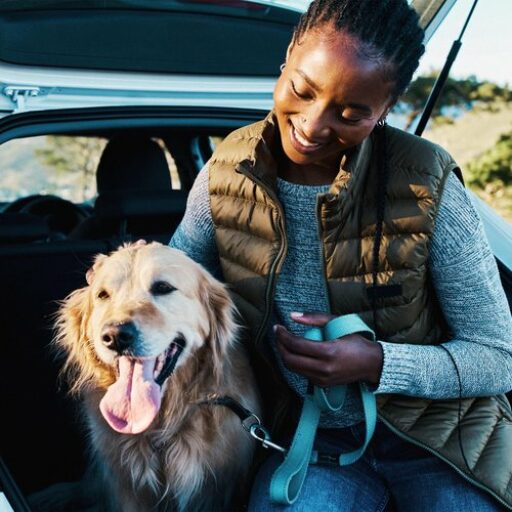Where Do You Go To Put A Dog To Sleep – When a beloved dog, cat, or other pet dies, it is natural to feel grief and sorrow. These tips can help you cope with the pain of your abdominal pain.
Most of us share a lot of love and connection with our animal companions. For us, a pet is not “just a dog” or a “cat”, but rather a beloved member of our family that brings companionship, fun and joy to our lives. A pet can add structure to your day, keep you active and social, help you overcome obstacles and challenges in your life, and even provide a sense of meaning or purpose. So, when a pet dies, it’s natural to feel a sense of sadness and loss.
Where Do You Go To Put A Dog To Sleep

The pain of loss can often be felt and cause all kinds of pain and difficult feelings. While some people may not understand the depth of your pet’s feelings, you shouldn’t feel guilty or ashamed about grieving for a pet.
Leave Your Dog’s Past Behind — Brilliant Family Dog
While we all respond to loss differently, the level of grief you often experience depends on factors such as your age and personality, the age of your pet and the circumstances of their death. In general, the more important your pet is to you, the more emotional pain you will feel.
The role of the animal in your life can also be influenced. For example, if your pet dog is a working dog, service animal, or therapy animal, you will not only mourn the loss of a companion, but the loss of a partner, the loss of your independence or the loss of emotional support. . If you live alone and your pet is your only companion, it can be even more difficult to come to terms with its loss. And if you can’t afford expensive veterinary care to extend your pet’s life, you might feel a lot of guilt.
While experiencing loss is an inevitable part of owning a pet, there are healthy ways to deal with the pain, come to terms with your grief, and when the time is right, perhaps pour your heart into another animal companion. open to
BetterHelp is an online therapy service with licensed, certified therapists who can help with depression, anxiety, relationships and more. Take the test and meet with a physician within 48 hours.
How To Help A Dog With A Stuffy Nose
Name checking is supported by the user. We receive a commission if you sign up for BetterHelp services after clicking through the site. learn more
Depression is an individual experience. Some people find that grief comes in stages after the loss of a pet, where they experience a variety of feelings such as denial, anger, guilt, sadness, and finally acceptance and resolution. Others find that their grief is more cyclical, coming in waves, or a series of highs and lows. Downhills are longer and longer at first and then gradually become shorter and less severe over time. Yet, even years after the loss, a certain sight, sound, or celebration can trigger memories that cause great grief.
The process of grieving happens gradually. It can’t be forced or rushed—and there is no “right” time for grief. Some people begin to feel better within weeks or months. For others, the grieving process is measured in years. Regardless of your grief experience, it’s important to be patient with yourself and allow the process to unfold naturally.

Depression, shock, or loneliness are common reactions to the loss of a beloved pet. Expressing these feelings does not mean that you are weak or that your feelings are wrong. It just means that you are mourning the loss of a beloved animal, so you shouldn’t be embarrassed.
Fun And Safety At The Dog Park
Ignoring your pain or trying to push it away will only make it worse.To truly heal, it’s important to face your pain and deal with it proactively. By expressing your grief, you will need less time to heal than if you ignore or “let go” of your feelings. Write about your feelings and talk about them with others who sympathize with your loss.
Grief and sadness are normal and natural reactions to death. Like grieving for our friends and loved ones, grieving for our animal companions can take some time, but there are healthy ways to cope with the pain. Here are some tips:
Don’t let anyone tell you how to feel, and don’t tell yourself how to feel. Your grief is yours, and no one else can tell you when it’s time to “move on” or “get over it.” Allow yourself to feel what you feel without shame or judgment. It’s okay to be angry, cry or not cry. It’s also good to laugh, find moments of joy and let go when you’re ready.
Reach out to others who have lost pets. Check out online message boards, pet loss hotlines, and pet loss support groups – see the Resources section below for details. If your own friends and family members aren’t sympathetic about pet loss, find someone who is. Often, another person who has also experienced the loss of a beloved pet can better understand what you are going through.
Viral Clip Shows How Dogs Are Loaded Onto Airplanes
Methods can aid healing. Ignore the people who think it’s inappropriate to bury a pet, and do what’s right for you.
Make a lot. Create a memorial, plant a tree in your pet’s memory, put together a photo album or scrapbook, or otherwise share memories with your pet to celebrate your animal companion’s life. Can create a legacy for. Remember the fun and love you can share with your pet can ultimately help you move forward.
Take care of yourself The stress of losing a pet can quickly drain your energy and emotional reserves. Taking care of your physical and emotional needs will help you get through this difficult time. Spend face time with people you care about, eat healthy, get enough sleep and exercise regularly to help release endorphins and improve your mood.

If you have other pets, try to maintain your normal routine. Living pets can also experience loss when a pet dies, or they can be saddened by your grief. Keeping up with their daily routines, or even getting exercise and playtime, will not only benefit a living pet, but can also help improve your mood and outlook.
Facts About Euthanasia (small Animals)
Get professional help if you need it. If your grief persists and interferes with your ability to function, your doctor or mental health professional may evaluate you for depression.
One aspect that can make grieving the loss of a pet very difficult is that the loss of a pet is not appreciated by everyone. Some friends and family may say, “What’s the big deal? It’s just a pet!” Some people believe that the loss of a pet should not be as traumatic as the loss of a person, or that it is not appropriate to grieve for an animal. They don’t understand why they don’t have their own pet or don’t appreciate the companionship and love that a pet can provide.
As we grow older, we experience an increasing number of major life changes, including the loss of beloved friends, family members, and pets. The death of a pet can affect retired adults even more severely than younger adults who may be able to shake off the comfort of close family, or distract themselves with regular work. If you’re an older adult who lives alone, your pet may be your only companion, and caring for an animal will give you a sense of purpose and self-worth.
Stay connected with friends. Pets, especially dogs, can help seniors meet new people or connect with friends and neighbors regularly while out for a walk or at the dog park. After losing your pet, it is important not to spend days alone. Try to spend time with at least one person every day. Regular face-to-face contact can help you avoid depression and stay positive. Invite an old friend or neighbor to lunch or join a club.
How To Prepare For Holiday Fireworks With Your Dog
Increase your strength with exercise. Pets help many older adults stay active and playful, which can boost your immune system and increase your energy. It is important to maintain your activity level after the loss of your pet. Check with your doctor before starting an exercise program and find an activity you enjoy. Exercising in a group—playing a sport like tennis or golf, or taking an exercise or swimming class—can also help you connect with others.
Try to find new meaning and happiness in life. Caring for a pet already takes up your time and boosts your motivation and optimism. Try to fill the time by volunteering, taking up a long-forgotten hobby, taking classes, helping friends, helping rescue groups or shelters that protect their animals, or even adopting another pet when you have time. be correct
The loss of a pet can be your child’s first experience of death and its first benefit

Dentist put you to sleep, where to put dog to sleep, where do you go to put a dog to sleep, where do you put a dog to sleep, put dog to sleep, where can i have my dog put to sleep, put your dog to sleep, where can i go to put my dog to sleep, put my dog to sleep, where do i go to put my dog to sleep, where do you go to put your dog to sleep, how do you put a dog to sleep

